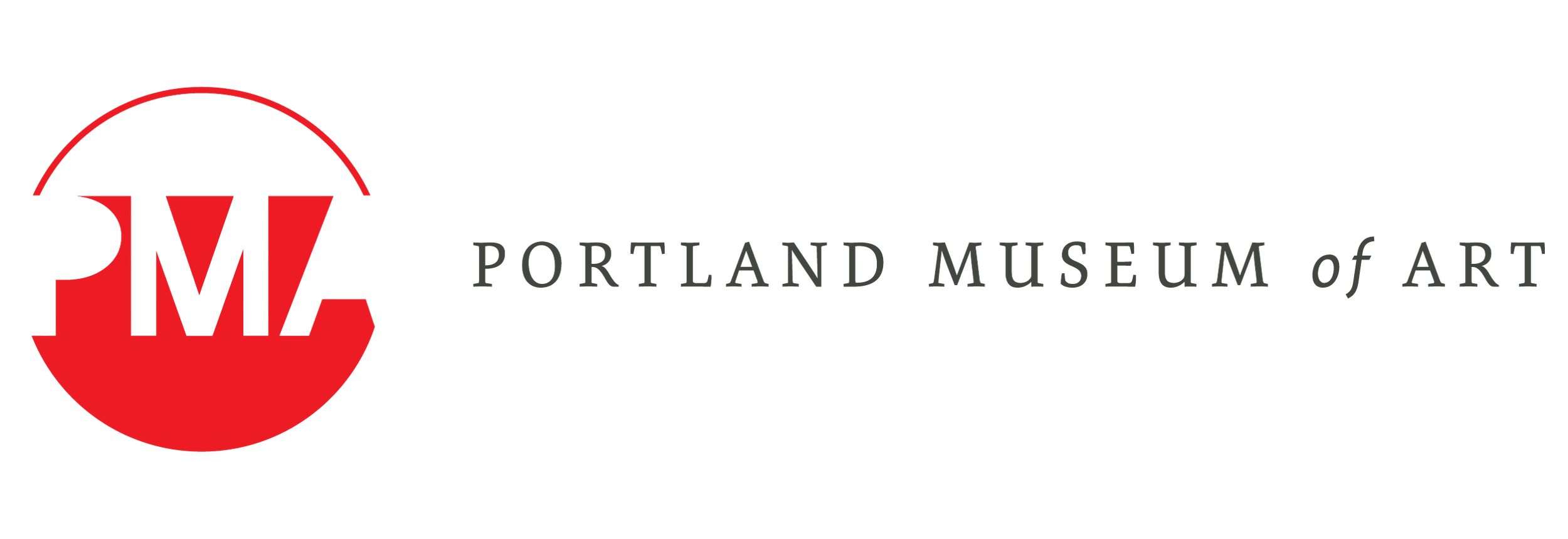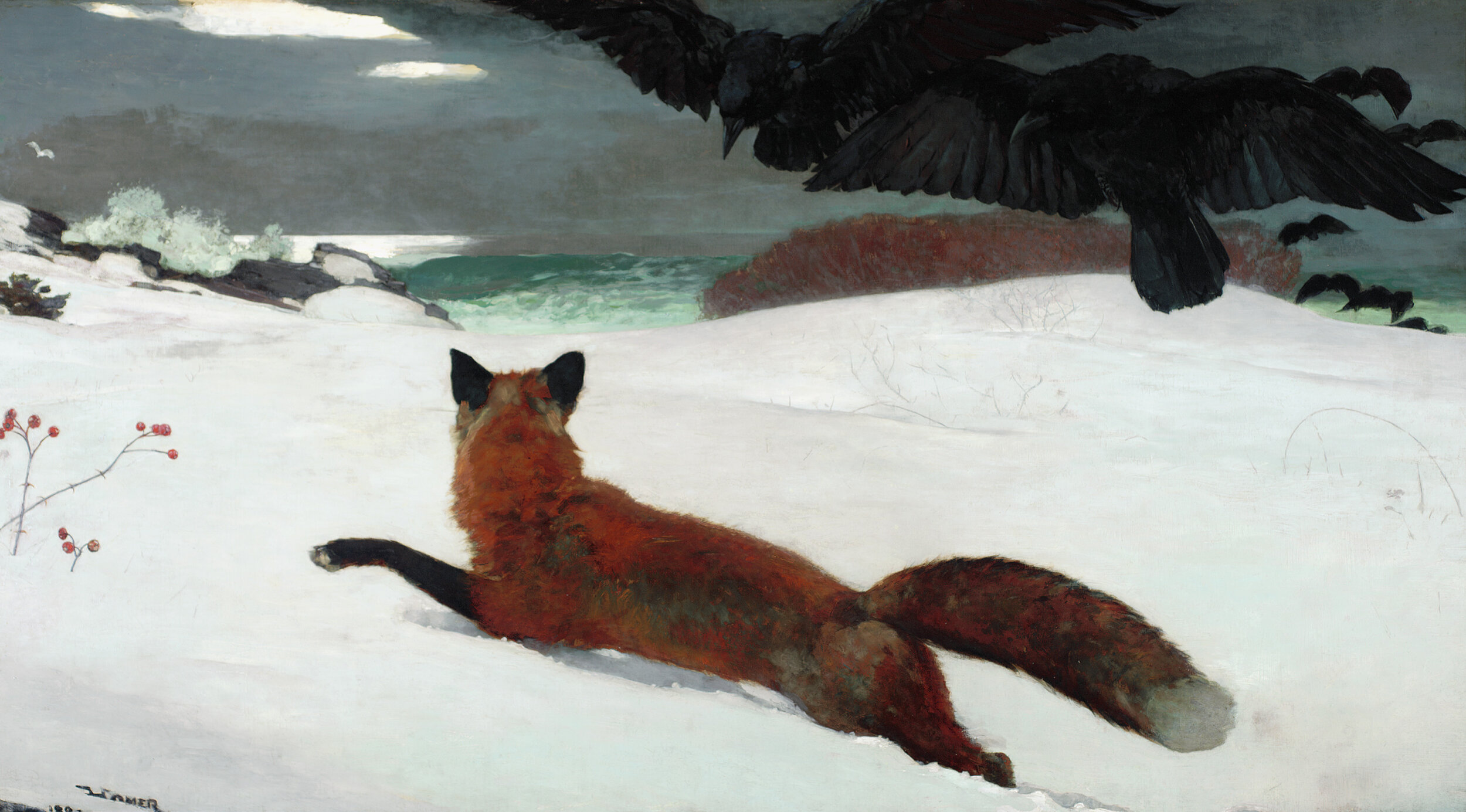The story behind "Mythmakers"
The Story Behind Mythmakers
from Mark Bessire, Judy and Leonard Lauder Director
Mythmakers: The Art of Winslow Homer and Frederic Remington has had many titles over the course of its development. As the curatorial team examined these two immensely talented artists together for the first time, they considered how to best describe the visions of war, wilderness, and quietude that these artists created in oil on canvas, bronze, and watercolor. At the PMA, we held discussions amongst our staff and with an advisory group of Maine-based experts from a wide range of fields and communities. The mythmaking that both artists participated in on a personal and national level arose and stuck.
Frederic Remington (United States, 1861–1909), A Dash for the Timber, 1889, oil on canvas, 48 1/4 x 84 inches. Amon Carter Museum of American Art, Fort Worth, Texas. Amon G. Carter Collection, 1961.381.
Winslow Homer and Frederic Remington solidified mythologies about themselves as artists, but, more importantly, about American masculinity and the nation’s frontier. In particular, Remington’s Western visions of heroic and independent cowboys were fictions to begin with—a white, male vision of dominance and conquest. Both artists’ works convey a visual narrative that still resonates today in complex and problematic ways. This exhibition brings these artists together to reveal and interrogate the myths they helped to create and perpetuate.
In developing this exhibition, we have continued our commitment to foregrounding community voices—a powerful and insightful component of PMA exhibitions beginning with 2016’s Edward Curtis: Selections from the North American Indian and continuing recently with N.C. Wyeth: New Perspectives and Stories of Maine: An Incomplete History. Mythmakers affords the unique opportunity not only to view these two artists’ works side by side, but also to invite a wide range of specialists to share their perspectives and expand upon the historical context of these works of art.
Our advisory group—which included colleagues from Colby College, the Abbe Museum, the Maine Fish and Wildlife Service, and Maine Veterans for Peace, among others—met several times over the last year to discuss how to approach these images with sensitivity and directness. You will find their perspectives represented throughout the exhibition as well as those of additional partners from across Maine and the West, including Comanche poet Juanita Pahdopony, Micmac educator Jennifer Pictou, cowboy musician Dom Flemons, painter Reggie Burrows Hodges, and Maine Guide Bonnie Holding.
Winslow Homer (United States, 1836–1910), Fox Hunt, 1893, oil on canvas, 38 × 68 1/2 inches. Courtesy of the Pennsylvania Academy of the Fine Arts, Philadelphia. Joseph E. Temple Fund, 1894.4.
We have been slowly building a network that brings new and needed perspectives to the PMA. This exhibition helps us join our community to have a number of difficult conversations. We still have so much work to do in these areas, but we are proud of the groundwork we have laid and the relationships we are building. We are thankful to everyone who joined our advisory groups, contributed to our interpretive materials, and helped us launch an important and ongoing dialogue around the exhibition.
I hope you visit Mythmakers this Fall to take in and respond to these extraordinary works of art. We are so excited to present all of these works together for the first time, and I am particularly pleased to welcome Homer’s great painting Fox Hunt, typically on view at the Pennsylvania Academy of the Fine Arts, back to the PMA for the first time since 2012. We hope you come away from Mythmakers inspired to ask questions about the stories that have helped shape this country, how these works of art are relevant today, and how these conversations can impact our future.
Mark H. C. Bessire
Judy and Leonard Lauder Director



